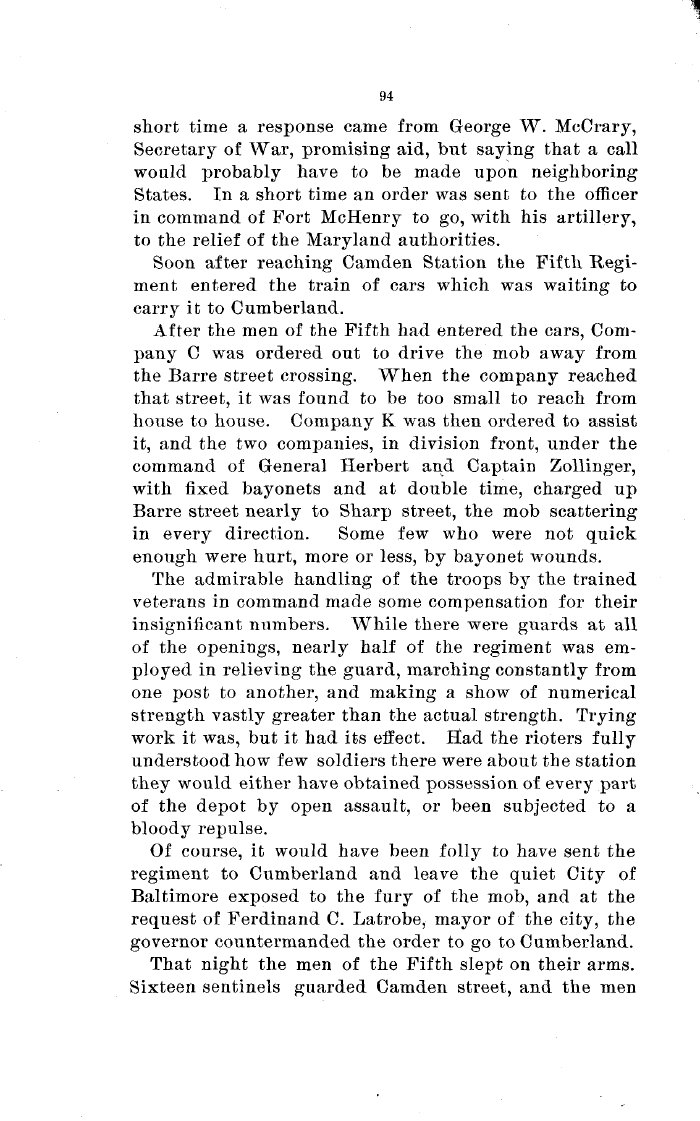 |
||||
 |
||||
| 94 short time a response came from George W. McCrary, Secretary of War, promising aid, but saying that a call would probably have to be made upon neighboring States. In a short time an order was sent to the officer in command of Fort McHenry to go, with his artillery, to the relief of the Maryland authorities. Soon after reaching Camden Station the Fifth Regiment entered the train of cars which was waiting to carry it to Cumberland. After the men of the Fifth had entered the cars, Company C was ordered out to drive the mob away from the Barre street crossing. When the company reached that street, it was found to be too small to reach from house to house. Company K was then ordered to assist it, and the two companies, in division front, under the command of General Herbert and Captain Zollinger, with fixed bayonets and at double time, charged up Barre street nearly to Sharp street, the mob scattering in every direction. Some few who were not quick enough were hurt, more or less, by bayonet wounds. The admirable handling of the troops by the trained veterans in command made some compensation for their insignificant numbers. While there were guards at all of the openings, nearly half of the regiment was employed in relieving the guard, marching constantly from one post to another, and making a show of numerical strength vastly greater than the actual strength. Trying work it was, but it had its effect. Had the rioters fully understood how few soldiers there were about the station they would either have obtained possession of every part of the depot by open assault, or been subjected to a bloody repulse. Of course, it would have been folly to have sent the regiment to Cumberland and leave the quiet City of Baltimore exposed to the fury of the mob, and at the request of Ferdinand C. Latrobe, mayor of the city, the governor countermanded the order to go to Cumberland. That night the men of the Fifth slept on their arms. Sixteen sentinels guarded Camden street, and the men |